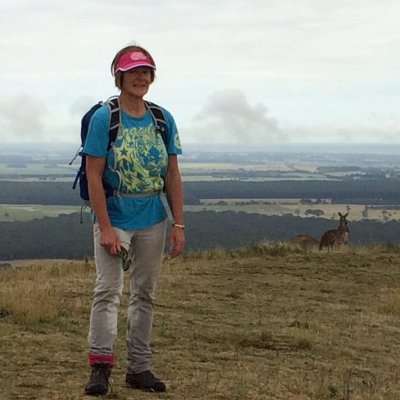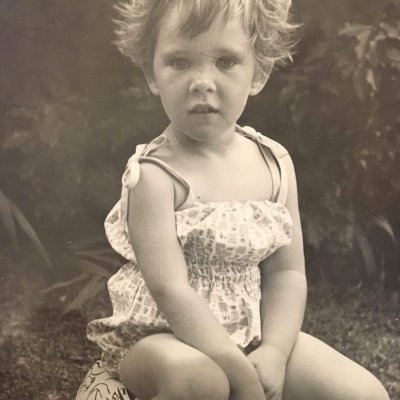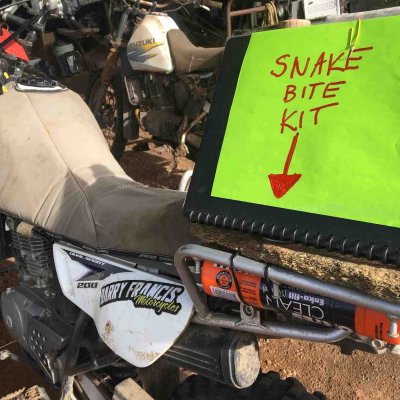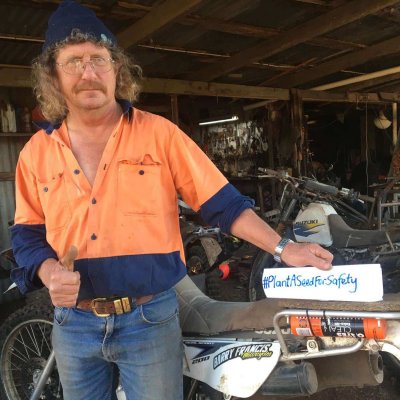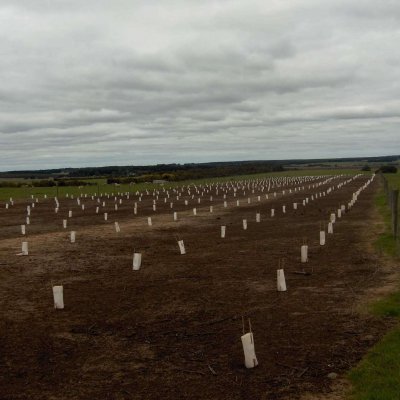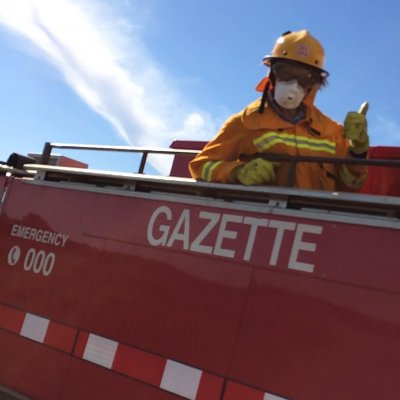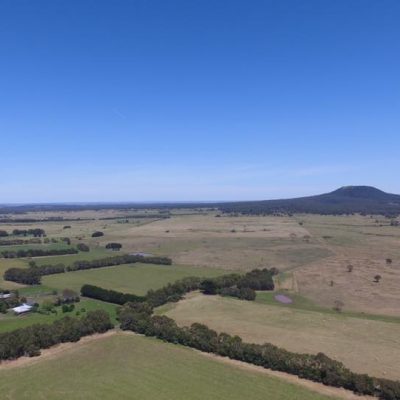Upon finishing her degree in Speech Pathology, Morna Semmens couldn’t wait to see the city lights of Melbourne disappear from her rear vision mirror. Born in Tamworth, Morna grew up the daughter of banker, and spent the majority of her youth in various rural towns across Victoria and New South Wales. Now based on a farm near Gazette in Western Victoria, Morna is a fire fighter, a health care worker, an environmental conservationist and an avid lover of all-things-ag. Morna prides herself on having completed her nursing degree in her 50’s, and is happiest when perched on the veranda with her husband, a fresh cup of coffee in her hand and her dog sunning herself at her feet.
When asked what concerned Morna about the health and safety of those in rural industries and communities, Morna highlighted the risks associated with her husband working late at night – in total darkness – fatigued, and with a high prevalence of snakes. In a small stroke of genius, Morna’s simple and yet incredibly effective response to this is to “stalk him” via Apple’s Find My Friends app, in addition to equipping each and every vehicle with a homemade snake bite kit. Morna also highlighted the value of the Emergency+ app, which would allow her husband to call 000 and provide his precise GPS location to emergency services.
How would you describe yourself in three words?
Positive and painfully persistent!
Tell me something interesting about yourself...
I am a Registered Nurse and work with my husband on our sheep and cattle grazing farm in Gazette, Western Victoria. I am actively engaged with the Country Fire Authority (CFA) and Landcare.
l love swimming and bike riding to keep fit. I also love planting trees on the family farm to encourage biodiversity and shelter for stock.
I am trying to slow down a bit (having hit 60), so more agistment, less sheep work, more swimming and travelling… less worry.
What's one achievement you are most proud of?
Having spent over 30 years transforming a rabbit-infested, treeless property into a productive farm and a beautiful place to live and work; for both stock AND people.
Sticking at it when the going gets tough – year after year – by keeping a long-term vision in focus even when you (and others) might think you are somewhat crazy to persist!
After spending 20 years in adult vocational rehabilitation working with clients impacted by workplace injuries (as my ‘off-farm’ career) – I needed a change! Consequently, I completed a nursing degree in my 50’s in order to focus more on preventative health, and empowering patients to do the same. It wasn’t enough… so back to Uni again! This time to study ‘Agricultural Health and Medicine’; a great way of combining my passion for healthy living, practical work settings, and communicating (developed in my early days as a Paediatric Speech Pathologist) – with the added bonus of building my knowledge in an industry that I love and understand (agriculture).
Proactive, preventative health to reduce the incidence of injured workers is much, much better than rehabilitation AFTER injury!
What makes you truly happy?
A completed (fenced, planted and guarded) shelter belt of tiny trees planted for another year.
Watching the birds and koalas living happily in the plantations that were established 10, 15, 20 and 30 years ago.
Sitting on the veranda with my partner drinking a freshly brewed coffee and listening to the kookaburras with my dog sunning herself at my feet.
What do you love the most about being a rural woman?
Working alongside teams of good people; whether its planting trees, fighting a fire on a CFA truck, drafting sheep, hiking a mountain or planning a community event.
The opportunity to build friendships with practical men and women who face a multitude of business and personal challenges, and yet have incredible resilience – they take multitasking to a whole new level!
Tell me about a time when you felt worried about your own or someone else’s health, safety or wellbeing on the farm, boat or in some other aspect of rural life.
When my partner isn’t home from the back paddock and it’s late at night, combined with total darkness, fatigue and the prevalence of snakes! I now use the Find My Friends App to ‘stalk’ him so I know where he is, and I’ve also organised snake bite kits for the motorbike, tractor and ute – an old chamois container is perfect!
The Emergency+ App also allows him to call 000 and give them his exact GPS location – that’s if he is conscious!
What practical things did or could you, your partner and / or others do to prevent someone from getting hurt?
We have an area near the back door – near the woolly winter hat box and the summer hat box – so that when you pick up a hat (which we invariably do), the ear plugs, muffs and P2 masks are right there on the same shelf as a visible reminder. It helps to turn the choice to be safe into part of a routine.
"I now use the Find My Friends App to ‘stalk’ him and I’ve also organised snake bite kits for the motorbike, tractor and ute - an old chamois container is perfect!"
Morna Semmens, Gazette, Victoria AU Tweet this
Is there a time, place or scenario when your partner / workers are more willing to make changes to the way work is done?
I try to steer conversations in my community to the risks on-farm by providing short, sharp, credible facts that help workers focus on the risks in their workplace.
Stories about injuries that are the result of momentary lapses in concentration always sharpen one’s focus – especially if those stories are the direct experience of someone a person knows. If someone I know has had a close shave, I always encourage them to share their story with their mates and ask their mates for ideas about what THEY would do to minimise the risk of that event happening again.
Getting everyone’s input into an identified risk helps continue the conversation throughout the community.
Over a cuppa at smoko in the shearing shed… just listening to stories about people’s work/life/concerns can highlight areas of risk.
If you could give any advice to another rural woman about work health and safety in rural industries, about influencing change in business - or just in general - what would it be?
Understand that the health and safety of your business relies on a healthy YOU – and that safety is just one key part of what makes up a healthy YOU.
Demonstrate safe working routines yourself – even if others around you are reticent, or take a bit longer to come around to change – be true to YOUR principles and beliefs.
Make it YOUR business to identify YOUR particular risks and then problem solve the best way on YOUR farm to address it. There is no one solution… we all have to be creative to stay safe.
Get literate about safe ways of working and keep abreast of how safety can be managed.
Is there anything else you'd like to add?
Rural women are what I call ‘the hidden engine room managers’ in farming businesses. Unfortunately, they are not always acknowledged for the ‘management behind the scenes’ that is critical to the operation of their businesses.
